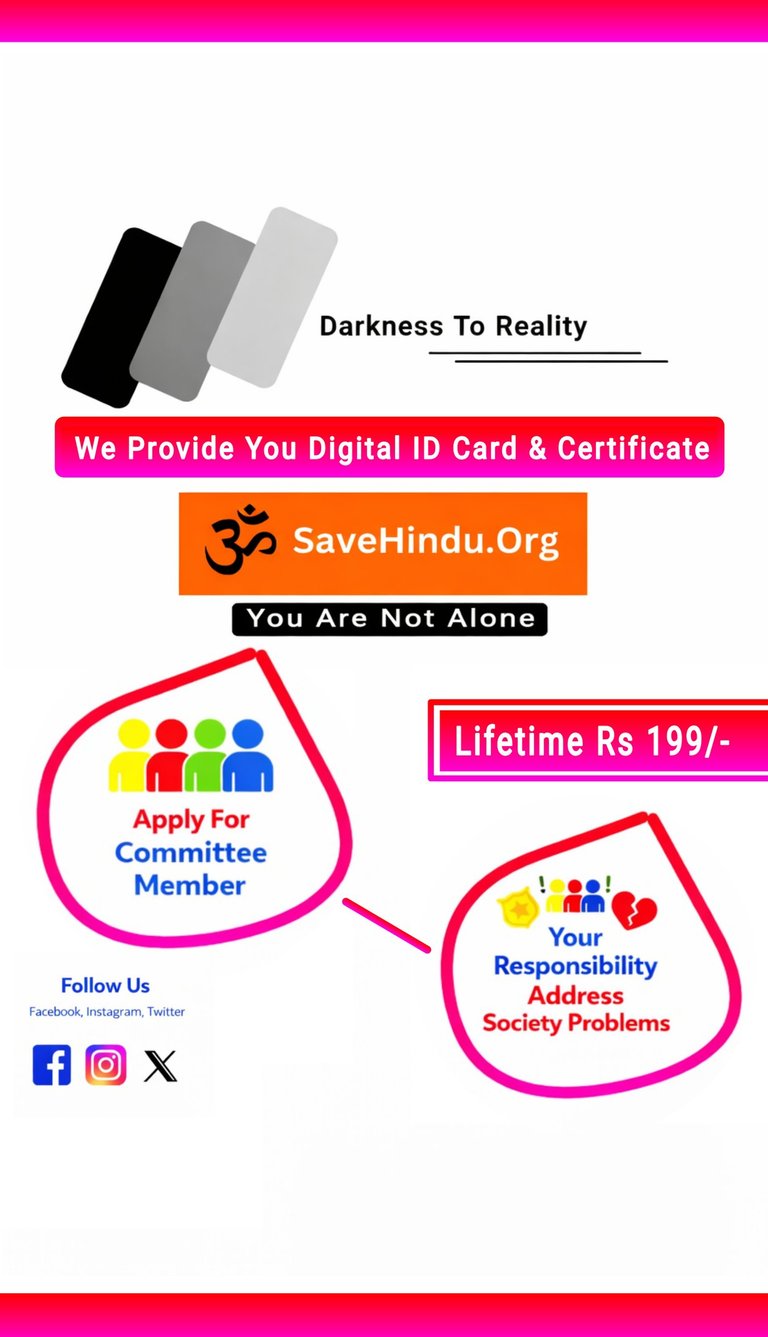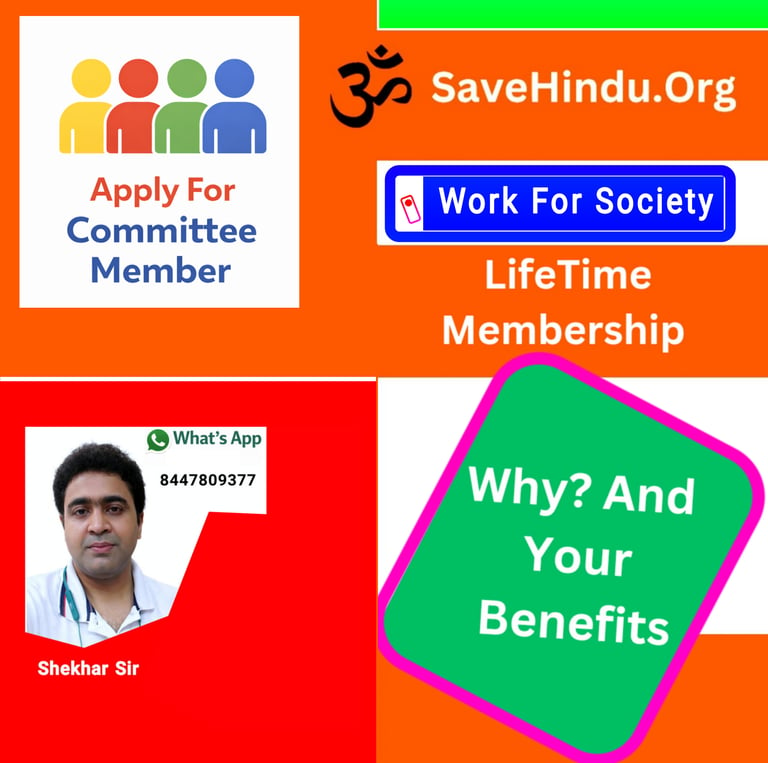Our Mission And Vision
Save Hindu Organization
If You Facing Any Kind Dipression, Tension, Disturbance, Health Problem
Unlimited What 's App Video Call Consultancy For You
11.00 Am To 7.00 Pm
📞 Book Your Appointment Today
What's App Us 8447809377
Justice For Society People– Standing with You in Difficult Times
You Are Not Alone — We Raise Our Voices Peacefully for Your Justice
One voice for truth vs many voice for truth, impact are different but truth never hide.
Don’t fully believe in astrology—only believe in your skills and dedication
We provide immediate assistance, legal guidance, and community support to Hindus facing harassment, injustice, or emergencies. Our mission is to protect, empower, and resolve issues with peacefully manners.
How We Help You
✅ 1. Listening Your Voice & Guidance
- Share your problem without fear—we listen carefully about your problems
- You’ will receive step-by-step guidance according your situation.
✅ 2. Police & Legal Assistance
- Don’t know how to file a complaint? We explain the process clearly.
- Need someone to speak for you? Our team can help you officially.
- Discuss with our community members to protect your rights.
✅ 3. Strong Community Support
- We connect you with trusted local leaders, volunteers, and organizations for faster solutions.
- No one fights alone—we mobilize help when you need it most.
✅ 4. Public & Legal Advocacy
- If you face injustice, we raise your voice through proper channels.
- Stand with you in court, media, or public forums to ensure fairness.
✅ 5. Conflict Resolution Without Violence
- We believe discussion with polite manners to resolve issues safely.
Why Trust Us?
✔ Experienced Team – Legal experts, community leaders, and volunteers.
✔ Fast Response – Quick action when you need help urgently.
✔ Respectful & Peaceful – No violence, Find out only peaceful solutions.
✔ Social Media Platform – We keep your details safe and share at social media platform for justice and quick society impact
Need Help? Contact Us Now
📞 +91 8447809377
You Are Not Alone — We Raise Our Voices Peacefully for Your Justice



Contact Us for Support
If you are facing any issues, please reach out to us. We are here to help you find a solution.
Help
Support
Address
Tilak Nagar New Delhi -110018







